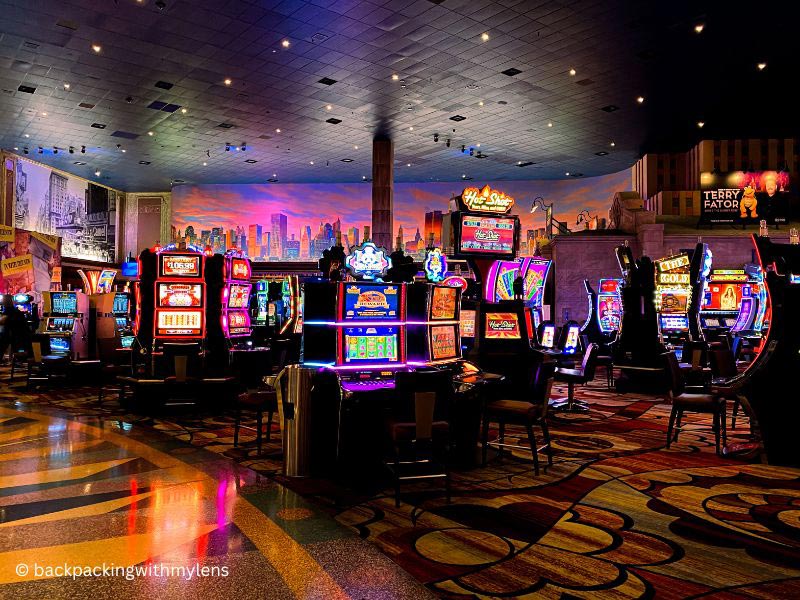
Casino gaming has long been a subject of fascination and debate, attracting millions of players globally. With a mix of luck, skill, and the excitement of risk, casino games offer an exciting escape from everyday life. However, as entertainment becomes ever more accessible, it invites a more thorough examination of the ethical implications surrounding these games.
At the heart of the discussion lies the issue of whether casinos promote safe gambling or exploit at-risk individuals. The allure of potential winnings versus the reality of losses can create a challenging situation, and understanding this balance is crucial for both players and operators. As we delve into the ethics of casino gaming, we will explore the responsibilities of casinos, the impact on society, and the measures that can be taken to foster a better gaming environment.
The Impact of Casino Gaming on Society
Casino gaming has a considerable influence on societal dynamics, affecting not only the economy but also social behaviors and community structures. The funds generated from casinos can lead to employment opportunities and boost regional economies, as they provide numerous employment opportunities in multiple fields including hospitality, leisure activities, and shopping. However, while the financial benefits can be substantial, communities often grapple with the possible negative impacts that arise from increased gambling activity.
Additionally, the presence of casinos can lead to an increase in gambling addiction, presenting serious challenges for players and families. The excitement of casino games can quickly transform into a habitual habit, affecting personal relationships and leading to financial instability. Many individuals may struggle with the loss of control over their gambling behaviors, resulting in a need for community support services and interventions to address this growing issue. The social cost of gambling addiction can extend through kinships and neighborhoods, creating an urgent need for responsible gaming initiatives.
In addition to the economic and social consequences, casino gaming often reflects cultural attitudes towards risk and entertainment. It can encourage a sense of excitement and leisure, attracting visitors and boosting tourism. However, this allure may also mask the broader implications of gambling as a method of entertainment, raising ethical questions about its promotion and availability. As communities weigh the advantages and drawbacks of casino gaming, the need for responsible practices and regulation becomes increasingly critical in ensuring that the beneficial elements are enhanced while minimizing the negative effects.
Moral Concerns in Betting Activities
The ethics of gambling operations often center around the potential for addiction and its consequences on people and families. Betting can lead to serious financial distress, impacting not only the betters but also their families. As individuals become caught in the appeal of winning, many lose track of their financial limits, which can result in catastrophic outcomes such as insolvency. This poses moral questions about the responsibility of casinos in fostering responsible gaming practices and offering support for those who may be struggling with betting addiction.
Another critical issue is the promotion of gambling to at-risk populations. Gambling establishments often aim at low-income individuals or communities with the promise of quick gains, which can continue cycles of poverty and hopelessness. In this situation, the morality of marketing strategies used by gambling establishments come under scrutiny, as they may take advantage of the desperation of individuals seeking an way out from financial hardships. This exploitation raises ethical questions about the integrity of the gambling industry and its obligation to safeguard its most vulnerable patrons.
Additionally, the effect of gambling operations on society as a entirety cannot be ignored. While some argue that casinos create employment and boost local economies, others point to the community costs associated with problem gambling, increased criminal rates, and a burden on public services. Balancing economic benefits with the potential for social harm presents a challenging moral dilemma for lawmakers and gambling operators alike. The difficulty lies in finding a responsible approach that prioritizes the well-being of individuals and society while still permitting for the pleasure of casino activities.
Regulation Structure and Duties
The legal structure related to gambling operations is developed to ensure equity, integrity, and gambler protection. Various government bodies and gaming commissions set and enforce regulations that dictate how gambling games work, the standards for product design, and the protocols for managing prizes. These regulations change by region but typically involve licensing requirements for businesses and rigorous measures to stop deception and scams.
In addition to regulatory bodies, gaming establishments bear considerable accountability in preserving principled standards within their establishments. They must implement responsible player practices that encourage gambler protection and consciousness, including offering self-ban options and providing information about the dangers related to betting. Establishments are also obligated for training employees to identify signs of difficult gaming and understand the correct steps to help customers in trouble.
Moreover, clarity in gaming operations is vital for gaining and preserving public faith. Operators should present clear data about the chances of games, promotional offers, and any associated hazards. By fostering an atmosphere of honesty and trust, gambling establishments can help mitigate the likelihood harmful impact of gaming while enhancing the overall gaming experience for all gamblers. best non GamStop casinos 2025